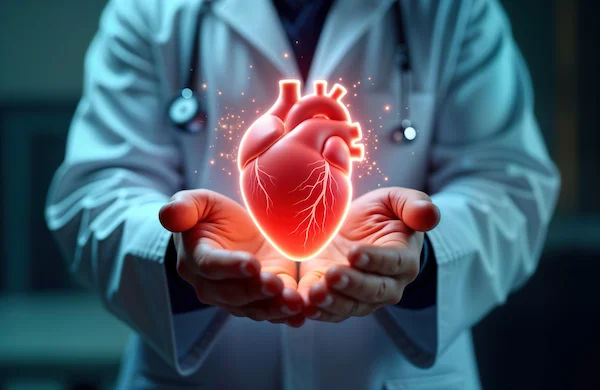- Male
- 28 Years
- 29/01/2025
I'm a 28-year-old male and I've noticed that for the past 6 months, my resting heart rate has consistently been over 100, sometimes getting up to 120. I'm really wondering if this is something normal or if I should be concerned about it. Is this something I need to get checked out?
More Cardiology Health Queries
View allI'm concerned about my blood pressure spiking in the evenings. It goes up to 16090, but stays under 12580 throughout the day until around 5pm. I'm 36, weigh 78kgs, and my height is 5 feet 4.5 inches. Is there something specific causing this? Any advice on what I should do?
To help manage your blood pressure spikes in the evening, you can consider taking a medication like Amlodipine (brand name Norvasc) 5mg daily in the evening. Additionally, lifestyle modifications such as reducing salt intake, regular exercise, maintaining a healthy weight, and managing stress can also be beneficial in controlling your blood pressure. Remember to consult with your doctor before starting any new medication.
Answered by 1 Apollo Doctors
My mother was diagnosed with gall bladder stones and is scheduled for surgery, but the doctor noticed something unusual in her heart X-ray and recommended an echo. The echo results came back as 4243 at the clinic but showed 2025 when repeated at a government hospital. Why are the readings so different and what should we do next?
Kindly share further details
Answered by 1 Apollo Doctors
I'm trying to understand the results of a recent angiogram and I'd love some clarity. It mentions a right femoral arterial approach with a normal LMCA, but there's a 90% stenosis in the proximal LAD and a 50% stenosis distally in the LCX. It also says the OM has a 90% stenosis in a small vessel, and the RCA has a 40% stenosis proximally. The renal angiogram shows everything is normal for both kidneys. My biggest worry is about the critical stenosis in the LAD. What does all this mean for my heart health, and what kind of treatment or lifestyle changes should I be considering?
Angioplasty is advised and a cardiologist opinion.
Answered by 1 Apollo Doctors
Disclaimer: Answers on Apollo 247 are not intended to replace your doctor advice. Always seek help of a professional doctor in case of an medical emergency or ailment.


_2.webp)


